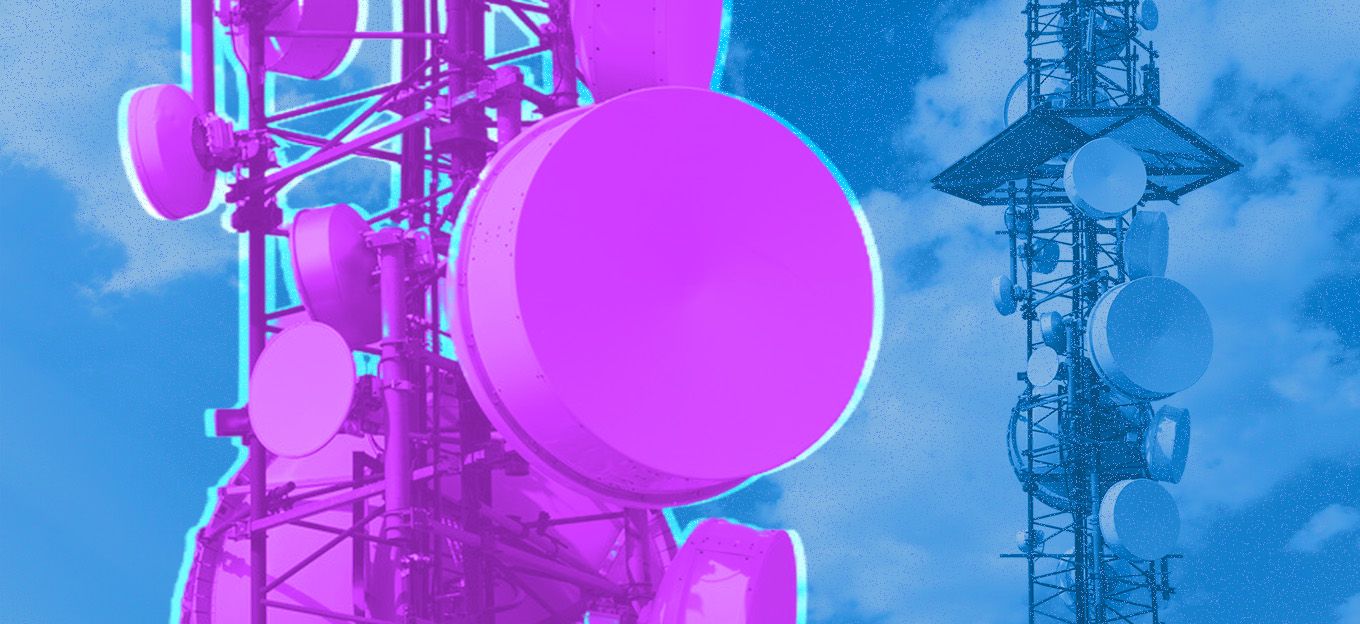Cellular Connectivity for Electric Vehicles and Charge Points
Cellular Connectivity for Electric Vehicles and Charge Points
- Last Updated: December 2, 2024
POND IoT
- Last Updated: December 2, 2024



Electric vehicles (EVs) are revolutionizing transportation. Efficient fleet management and reliable charging are vital to their success. Connectivity is the key, enabling real-time data, remote monitoring, and seamless communication. Let’s explore how cellular connectivity improves EV fleets and charge points, highlighting its importance for sustainable transportation.
The Role of Connectivity in EV Fleet Management
Cellular connectivity is fundamental to modern EV fleet management, offering several benefits that enhance operational efficiency and vehicle reliability.
Real-time Monitoring and Data Collection
Fleet managers need to monitor vehicles in real time to ensure smooth operations. Cellular connectivity provides essential data on various aspects of the fleet. Managers can track battery levels to know when a vehicle needs charging and monitor precise locations to optimize routing and avoid traffic.
They can also monitor performance metrics to detect any issues early. This continuous flow of information helps make informed decisions and optimize routes for better fuel efficiency. It also enables proactive maintenance scheduling to prevent unexpected breakdowns, boosting overall efficiency.
Remote Diagnostics and Maintenance
With cellular connectivity, fleet managers can diagnose issues and update software remotely, significantly reducing electric vehicle downtime. For example, if a vehicle experiences a minor fault, the problem can often be identified and fixed remotely, eliminating the need to bring the vehicle into the shop. This capability ensures that vehicles spend more time on the road and less time in the garage.
Additionally, predictive maintenance uses data to identify potential issues before they become serious problems. By dealing with these issues early, fleets can avoid costly repairs and unexpected breakdowns.
Efficient Fleet Operations
Connectivity provides valuable insights into how vehicles are used and how drivers behave on the road. For instance, data on driving patterns like speed, braking, and acceleration can be analyzed to identify areas for improvement. This information can be used to enhance driver training programs, promoting safer driving habits.
By encouraging more efficient driving, fuel consumption can be reduced, which lowers operating costs. Additionally, tracking vehicle usage helps in planning better routes and schedules, ensuring that the fleet operates at maximum efficiency. Overall, these insights help create a safer, more cost-effective, and efficient fleet operation.
Enhancing Charge Point Operations with Cellular Connectivity
It also plays a crucial role in the efficient operation and management of EV charge points, offering several key benefits.
Remote Monitoring and Management
Charge points equipped with cellular connectivity can be managed from a distance, offering significant convenience and efficiency. Operators can continuously monitor the status of each charge point, ensuring they are operational and available for users. If a problem arises, like a malfunction or error message, operators can quickly resolve it by resetting the units remotely.
Additionally, operators can manage energy remotely, balancing the load and preventing overloading during peak usage times. This remote oversight keeps charge points functional and ready for EV drivers, minimizing downtime and enhancing user satisfaction.
Payment and Authentication Systems
Cellular connectivity enables secure payment processing and user authentication at public electric vehicle charge points, ensuring a smooth and reliable experience for users. Drivers can initiate charging sessions through various methods, such as mobile apps, RFID cards, or contactless payment systems. Cellular connectivity ensures that transactions are secure, protecting sensitive information and reducing the risk of fraud.
Additionally, the system can verify user identities quickly and accurately, allowing authorized users to access charging services without delays. This seamless integration of payment and authentication systems enhances convenience for drivers and ensures the security and reliability of charge point operations.
Data Collection and Analysis
Charge points collect extensive data on various aspects such as usage patterns, peak times, and energy consumption. This data is then transferred via cellular connectivity to central systems for analysis. By examining usage trends, operators can see which charge points are used most often and when. This helps them optimize placement and availability.
Energy consumption data helps manage the grid load more effectively and plan for necessary upgrades. This detailed analysis helps operators improve current services. It ensures that charge points are always available when needed. Additionally, it allows operators to make informed decisions about expanding the charging network to meet future demand.
Multi-IMSI SIMs: Enhancing Connectivity and Reliability
These SIM cards are transforming connectivity for EV fleets and charge points. By housing multiple profiles on a single SIM card, they offer greater network flexibility and dependability. This feature enables the SIM to automatically switch between networks, ensuring it always connects to the best available option. As a result, users experience fewer interruptions and better performance, even in areas with weak signals.
This technology is particularly beneficial for EV fleets that travel through different regions with varying network strengths. It keeps the fleet connected automatically, which is crucial for real-time data transmission and monitoring.
Similarly, charge points with multi-IMSI SIMs can keep a stable connection. This ensures smooth payment processing and reliable data collection. This continuous connectivity enhances the overall efficiency and reliability of EV operations.
The Future of Cellular Connectivity in EV Fleets and Charge Points
The future of cellular connectivity holds exciting advancements that will further enhance the efficiency and functionality of EV fleets and charge points.
5G and Beyond
The arrival of 5G technology is poised to revolutionize cellular connectivity for EV fleets and charge points. With its blazing fast speeds, minimal latency, and increased capacity, 5G opens the door to advanced applications. For instance, real-time vehicle-to-everything (V2X) communication lets vehicles instantly interact with each other, traffic signals, and infrastructure. This will lead to smoother traffic flow, fewer accidents, and a better driving experience overall.
Moreover, 5G will enhance energy management by enabling more accurate control and monitoring of charging stations. Operators will be able to distribute energy more efficiently, manage grid loads better, and incorporate renewable energy sources more effectively. These improvements will drive significant advancements in the EV ecosystem, fostering a smarter and more connected future.
Conclusion
Cellular connectivity is essential for the success of electric vehicles. It enables real-time monitoring, remote diagnostics, and efficient communication, which optimizes fleet operations and improves charging infrastructure.
For fleet management, it helps track vehicle status, diagnose issues remotely, and schedule maintenance, reducing downtime and enhancing efficiency. For charge points, it allows for remote monitoring, secure payments, and effective data analysis. This keeps the network reliable and user-friendly.
With the advent of 5G, the benefits of cellular connectivity will expand, offering faster speeds and better energy management.
In summary, cellular connectivity is crucial for the growth and sustainability of the EV ecosystem. It drives advancements in fleet management and charging infrastructure.
The Most Comprehensive IoT Newsletter for Enterprises
Showcasing the highest-quality content, resources, news, and insights from the world of the Internet of Things. Subscribe to remain informed and up-to-date.
New Podcast Episode

IoT in 2026: Trends and Predictions
Related Articles





